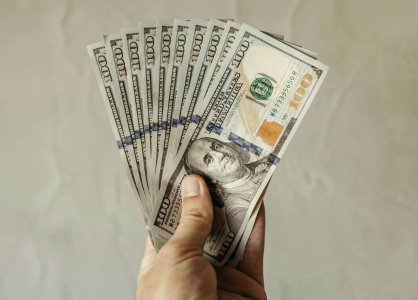A new proposal could bring $1,000 rebate checks to millions of homeowners
By
Veronica E.
- Replies 0
If you own your home, you may soon receive some unexpected financial relief.
A new proposal aims to send out direct payments—around $1,000 per household—to help ease the burden of rising housing costs and property taxes.
Supporters say it could provide real breathing room for millions of people by the end of the year.
But this isn’t just a one-time payment—it’s tied to a broader push to change how property taxes work entirely.
Here’s a closer look at what’s being discussed, who could benefit, and what it might mean for your community.

A rebate for homeowners—and a bigger plan in motion
The proposal calls for $1,000 rebate checks for homeowners in Florida who qualify for the homestead exemption on their primary residence.
It’s part of a larger effort by Florida officials to overhaul how property taxes are assessed and collected.
In addition to the one-time payment, the plan includes a proposed increase in the homestead exemption to $500,000 and a 15% cap on property value assessment increases.
If approved, rebate checks could start going out as early as December 2025—just in time for the holidays.
An estimated 5.1 million Florida households could be eligible.
Also read: A new proposal could bring major changes to property tax bills for older homeowners
Who qualifies, and what’s the catch?
To receive the rebate, a homeowner must have a property in Florida that is their primary residence and is properly registered for a homestead exemption.
Rental properties, vacation homes, and second residences would not qualify.
However, for the proposal to move forward on schedule, the Florida Legislature must approve the plan this session.
Governor Ron DeSantis is urging lawmakers to act quickly, stating, “Let’s get this done for the people of Florida this session.”
Also read: Are you making this costly property tax mistake? One couple lost $76,000—Here’s how to avoid it
A proposal to eliminate property taxes entirely?
The rebate is only one part of a much larger vision.
DeSantis and other Florida leaders are also advocating for the complete elimination of property taxes, which would make Florida the only state in the US without both an income tax and a property tax.
While the idea might sound appealing to homeowners, it raises serious concerns about how local services—like schools, law enforcement, and infrastructure—would be funded.
Property taxes currently generate $55 billion annually in Florida and represent a significant share of funding for counties, cities, and public schools.
Also read: This state just passed major property tax cuts—here’s who benefits, and who’s footing the bill
What would replace property taxes?
One possible solution being discussed is a major increase in the state sales tax.
Experts estimate that Florida would need to double its sales tax from 6% to 12% to replace the lost property tax revenue.
That kind of jump could impact every resident, particularly those living on fixed incomes or already managing rising costs.
Also read: You could be missing out: See if you're owed part of $2.3 million in unclaimed property
The debate: Is this long-term relief or a risky move?
Reactions to the plan have been mixed.
Supporters say it would make Florida more appealing for retirees, working families, and businesses alike.
Critics are concerned about the impact on public services and the stability of relying more heavily on sales tax.
Real estate executive Budge Huskey emphasized the importance of careful planning: “We have created an environment which is among the best in the country... but at the same time, it has to be responsible, and it has to be based on real numbers.”
Also read: Senators back surprise measure offering financial relief to millions
What Florida homeowners can do now
If you live in Florida and think you may qualify for the proposed rebate, here are a few steps to take:
A proposed $1,000 rebate could offer meaningful short-term relief for many Florida homeowners, including those on fixed incomes.
However, it's important to consider the rebate as part of a larger conversation about tax reform.
Eliminating property taxes altogether could have long-term implications, especially for public services like schools, emergency response, and infrastructure.
Read next: IRS warns Americans to secure their finances before disaster season heats up

Would this rebate make a difference in your household? Or are you more concerned about what might happen if property taxes disappear altogether? Share your thoughts—we’d love to hear what this proposal means for you.
A new proposal aims to send out direct payments—around $1,000 per household—to help ease the burden of rising housing costs and property taxes.
Supporters say it could provide real breathing room for millions of people by the end of the year.
But this isn’t just a one-time payment—it’s tied to a broader push to change how property taxes work entirely.
Here’s a closer look at what’s being discussed, who could benefit, and what it might mean for your community.

A new proposal could send $1,000 rebate checks to eligible homeowners, with millions potentially benefiting by the end of 2025. Image Source: Pexels / Jonathan Borba.
A rebate for homeowners—and a bigger plan in motion
The proposal calls for $1,000 rebate checks for homeowners in Florida who qualify for the homestead exemption on their primary residence.
It’s part of a larger effort by Florida officials to overhaul how property taxes are assessed and collected.
In addition to the one-time payment, the plan includes a proposed increase in the homestead exemption to $500,000 and a 15% cap on property value assessment increases.
If approved, rebate checks could start going out as early as December 2025—just in time for the holidays.
An estimated 5.1 million Florida households could be eligible.
Also read: A new proposal could bring major changes to property tax bills for older homeowners
Who qualifies, and what’s the catch?
To receive the rebate, a homeowner must have a property in Florida that is their primary residence and is properly registered for a homestead exemption.
Rental properties, vacation homes, and second residences would not qualify.
However, for the proposal to move forward on schedule, the Florida Legislature must approve the plan this session.
Governor Ron DeSantis is urging lawmakers to act quickly, stating, “Let’s get this done for the people of Florida this session.”
Also read: Are you making this costly property tax mistake? One couple lost $76,000—Here’s how to avoid it
A proposal to eliminate property taxes entirely?
The rebate is only one part of a much larger vision.
DeSantis and other Florida leaders are also advocating for the complete elimination of property taxes, which would make Florida the only state in the US without both an income tax and a property tax.
While the idea might sound appealing to homeowners, it raises serious concerns about how local services—like schools, law enforcement, and infrastructure—would be funded.
Property taxes currently generate $55 billion annually in Florida and represent a significant share of funding for counties, cities, and public schools.
Also read: This state just passed major property tax cuts—here’s who benefits, and who’s footing the bill
What would replace property taxes?
One possible solution being discussed is a major increase in the state sales tax.
Experts estimate that Florida would need to double its sales tax from 6% to 12% to replace the lost property tax revenue.
That kind of jump could impact every resident, particularly those living on fixed incomes or already managing rising costs.
Also read: You could be missing out: See if you're owed part of $2.3 million in unclaimed property
The debate: Is this long-term relief or a risky move?
Reactions to the plan have been mixed.
Supporters say it would make Florida more appealing for retirees, working families, and businesses alike.
Critics are concerned about the impact on public services and the stability of relying more heavily on sales tax.
Real estate executive Budge Huskey emphasized the importance of careful planning: “We have created an environment which is among the best in the country... but at the same time, it has to be responsible, and it has to be based on real numbers.”
Also read: Senators back surprise measure offering financial relief to millions
What Florida homeowners can do now
If you live in Florida and think you may qualify for the proposed rebate, here are a few steps to take:
- Check your homestead exemption status to ensure your property is properly registered.
- Stay informed by following news from the Florida Legislature and governor’s office as the session progresses.
- Make a plan for how you might use the rebate—whether for home repairs, everyday expenses, or savings.
A proposed $1,000 rebate could offer meaningful short-term relief for many Florida homeowners, including those on fixed incomes.
However, it's important to consider the rebate as part of a larger conversation about tax reform.
Eliminating property taxes altogether could have long-term implications, especially for public services like schools, emergency response, and infrastructure.
Read next: IRS warns Americans to secure their finances before disaster season heats up
Key Takeaways
- Florida is considering $1,000 rebate checks for homeowners with a homestead exemption, with payments projected to go out by December 2025.
- The plan also includes a $500,000 homestead exemption and a 15% cap on property assessment increases.
- Governor Ron DeSantis is pushing to eliminate property taxes entirely, which could make Florida the only state without income or property tax.
- Experts warn that replacing property tax revenue may require doubling Florida’s sales tax from 6% to 12%, raising concerns about public service funding.
Would this rebate make a difference in your household? Or are you more concerned about what might happen if property taxes disappear altogether? Share your thoughts—we’d love to hear what this proposal means for you.






